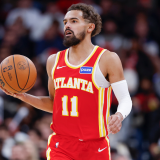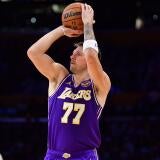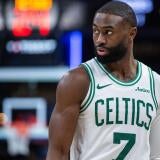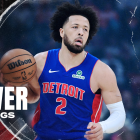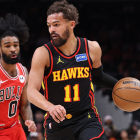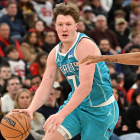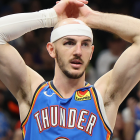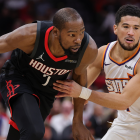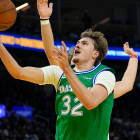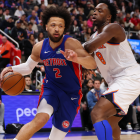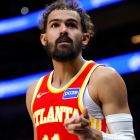
Deandre Ayton claims he has nothing to prove as he's 'a max player,' but that's precisely the problem
Ayton hasn't looked like a max player in years
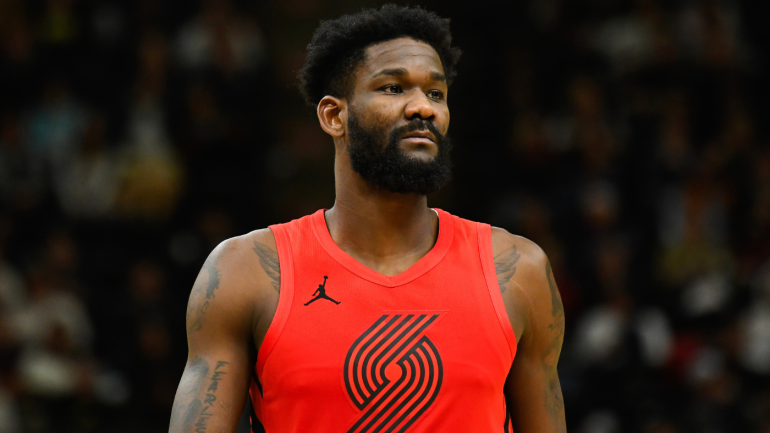
Few NBA players are more inextricably defined by their contract than Trail Blazers center Deandre Ayton. The former No. 1 overall pick feuded with the Phoenix Suns throughout the 2021 offseason over their reluctance to give him a full max contract. At the time, that frustration appeared justified.
Aside from his draft status, Ayton had just been a key part of a team that reached the NBA Finals. His scoring may have declined in his third season, but his overall performance improved significantly. He was the anchor of Phoenix's defense. He defended Nikola Jokic better across a full playoff series than anyone had. They lost the 2021 Finals in part because they couldn't survive the minutes he rested. In their four losses against the Bucks, the Suns were outscored by 23 points in the 48 minutes Ayton spent on the bench. He deserved to get paid after that series. The Suns hesitated. Things have been going south ever since.
The Suns were embarrassed by the Mavericks in Game 7 of their 2022 second-round series. Phoenix coach Monty Williams benched Ayton in that game. Ayton got his contract, but needed an offer sheet out from Indiana for his payday. When training camp opened months later, Ayton revealed that the two of them hadn't spoken all offseason. Ayton missed the season-ending loss to Denver and got traded late in the offseason.
Now, he's playing arguably the worst basketball of his career on a non-competitive Portland team. He's averaging a career-low in scoring (12.5 points per game), but it's where his shots are coming from that is so concerning. Only 26.9% of his shots have come within three feet of the basket. That's the 10th-highest figure on the Blazers roster among players to play in at least 10 games, a pathetic figure for a starting center that doesn't make 3-pointers. His minuscule 13.1% free-throw rate is similarly reflective of how he's playing.
Ayton, once among the most dangerous pick-and-roll big men in basketball when he was catching passes from Chris Paul, is settling for the less efficient hooks and jumpers he prefers rather than emphasizing getting to the rim or the foul line. His defense has similarly declined. His defensive EPM is negative for the first time in his career and is currently ranked 56th among centers when he was once among the NBA's better rim protectors. He has the lowest block rate of his career. He's contesting slightly fewer shots per game this season despite playing slightly more minutes.
Yet Ayton seems largely unfazed by these developments. In an interview with Basketball Intelligence's Mark Medina, he said that he has "nothing to prove in this league." Why? "I'm a max player, and I'll continue to be a max player," Ayton said.
In the technical sense, Ayton is correct. He signed a max contract, and is therefore a max player if it expires. But in the more practical sense of the term, no, Ayton is not a max player or even close to it. His numbers should be enough to prove that, but in case they aren't, Ayton is the 40th-highest-paid player in the NBA this season. Of the 39 players ahead of him, 36 have been named All-Stars at least once. Two of the remaining three players, Michael Porter Jr. and Jamal Murray, are NBA champions, and the lone remaining option, C.J. McCollum, spent his prime playing second fiddle to Damian Lillard on a Blazers team that was rarely good enough to warrant two All-Stars. Ayton hasn't accomplished what those players have.
You can count the number of players in the NBA with nothing to prove on one hand. Sure, all-time greats like LeBron James and Stephen Curry could credibly say this, but being a player of that caliber basically necessitates a different sort of attitude. Being a max-level player means constantly striving for improvement, setting new goals and proving you can reach them. But Ayton has regressed as a player. If he were a free agent this offseason he wouldn't come close to a max contract. If things don't change over the next few years, he won't be a max player once his current contract expires after the 2025-26 season.
Ayton may have proven at one point that was, in fact, a max player. But he certainly hasn't continued to be one, and that practically nullifies the accomplishment of getting there in the first place. Part of being a max player is maintaining max-level play. Ayton has the tools to get there again. But if his attitude reflects the idea that getting there once means he'll be there forever, the odds of that happening appear slim at best.


